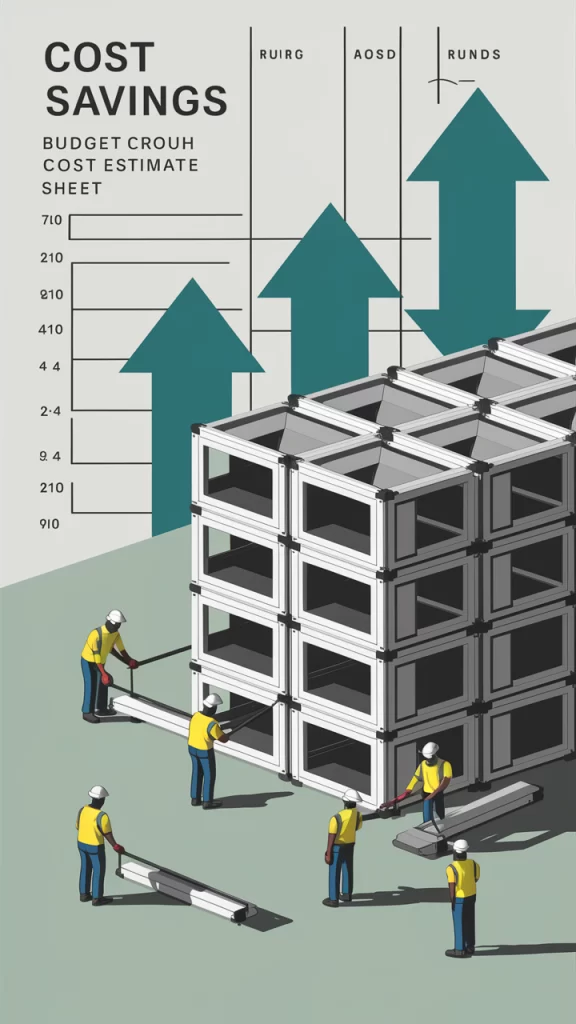
Airbnb Guest: A Host’s Guide to a Memorable Start
Facebook Twitter LinkedIn Reddit Email WhatsApp Welcome Your First Guest on Airbnb: A Host’s Guide to a Memorable Start Welcoming your first guest on Airbnb
In recent years, the construction industry has witnessed a transformative shift, with modular construction emerging as a popular method in real estate development. This innovative approach offers significant advantages, allowing developers to meet project demands more efficiently and cost-effectively. Here’s why modular construction is making waves and what benefits it brings to real estate development.
One of the standout benefits of modular construction is speed. Traditional construction often faces delays due to weather, labor shortages, or supply chain issues. In contrast, modular construction allows developers to build in a controlled factory environment, where modules are created simultaneously with site preparation. This parallel process drastically shortens construction timelines, enabling developers to complete projects up to 50% faster than conventional methods.
For developers, a faster project completion means quicker returns on investment. This advantage is particularly crucial in competitive real estate markets, where every day counts toward meeting demand and achieving financial goals.
Cost control is a significant consideration in any real estate project. Modular construction helps developers save money in several ways. First, manufacturing modules in a factory setting reduces material waste due to precise production processes. Additionally, since modular construction is less prone to weather delays, there are fewer unplanned expenses related to project extensions.
Moreover, the efficiency of factory production lowers labor costs. Traditional construction requires a substantial on-site workforce, while modular construction relies on fewer, specialized workers. In the end, developers benefit from substantial cost savings without sacrificing quality.

Quality is paramount in real estate development, and modular construction offers a controlled, standardized environment that enhances the quality of the final product. Because each module is built indoors, it is less vulnerable to external factors like weather or vandalism that can impact construction quality. Factories implement strict quality checks throughout the production process, ensuring each unit meets high standards before it reaches the site.
Furthermore, the repetition involved in modular construction leads to increased consistency. This standardization helps developers maintain uniformity across units, which is particularly valuable in large-scale housing or commercial projects.
Modular construction provides an impressive level of flexibility for real estate developers. Because modules are pre-built, they can be easily customized to meet different design requirements. Developers can select from various layouts, finishes, and architectural styles, allowing them to tailor their projects to specific market demands. Whether it’s a high-rise residential building or a commercial office space, modular construction can adapt to diverse needs.
This flexibility also extends to future modifications. Modular buildings can be expanded, reconfigured, or even relocated as needed. For developers, this adaptability means that their investments can evolve with market trends or changes in property use, adding long-term value to their projects.
Safety is always a priority in construction, and modular methods help enhance worker safety by reducing time spent on active construction sites. Most of the work happens in a controlled factory setting, where risks like falls, exposure to extreme weather, and other common on-site hazards are minimized.
Additionally, modular construction often requires fewer workers on-site, further reducing the risk of accidents. This safer process is beneficial for both workers and developers, as it leads to fewer project disruptions due to safety incidents.

Finally, modular construction has a positive impact on the surrounding community. By reducing on-site construction time and noise, it minimizes the disruption caused by traditional building projects. This benefit is particularly appreciated in densely populated or urban areas, where constant construction noise and road closures can impact residents’ quality of life.
Moreover, modular construction supports local employment and manufacturing industries, as many factories are set up within the region. For real estate developers, supporting the local economy can enhance their brand reputation and foster goodwill in the community.
If you don’t own a home, buy one. If you own a home, buy another one. If you own two homes buy a third. And lend your relatives the money to buy a home.
John Paulson Tweet
The benefits of modular construction in real estate development are undeniable. Faster completion times, reduced costs, improved quality, and sustainability make it an appealing option for modern developers. With these advantages, modular construction is paving the way for a more efficient, flexible, and responsible future in real estate.

Facebook Twitter LinkedIn Reddit Email WhatsApp Welcome Your First Guest on Airbnb: A Host’s Guide to a Memorable Start Welcoming your first guest on Airbnb

Facebook Twitter LinkedIn Reddit Email WhatsApp Mastering Airbnb Policies and Legal Requirements: A Guide for Hosts If you’re considering hosting on Airbnb, understanding the platform’s

Facebook Twitter LinkedIn Reddit Email WhatsApp The Anatomy of a Perfect Airbnb Listing Creating an irresistible Airbnb listing is both an art and a science.